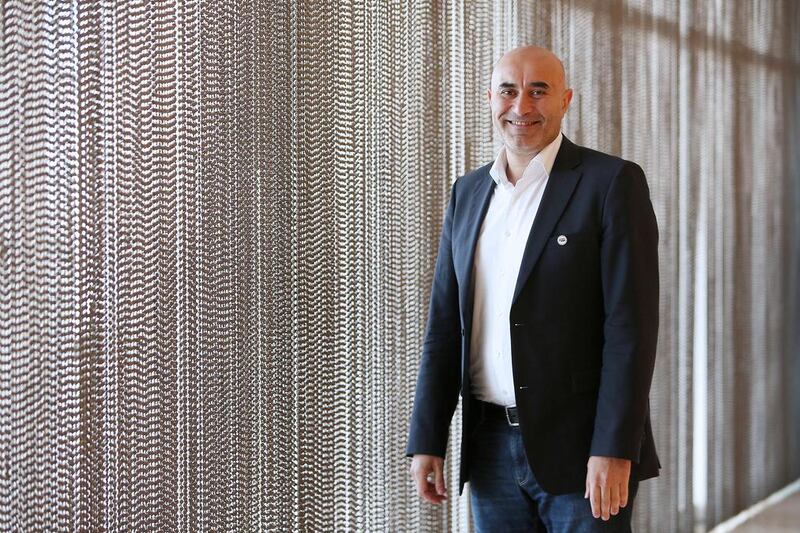Ronaldo Mouchawar is the founder and chief executive of one of Dubai’s biggest success stories – Souq.com. The company, which started out in 2005 with only five employees, is now a platform for more than 70,000 vendors, displaying over 1 million products and is accessible in Egypt, Saudi Arabia, Kuwait, Qatar, Oman and Bahrain as well as the UAE. The Syrian spoke at the TiEcon Entrepreneurship Convention in Dubai last week about creating online powerhouses.
What was your vision for Souq.com in the early days?
The initial vision still remains – connecting people to things. We started launching in other countries because I believed in connecting the Arab world. While the system was not perfect, we ran around hiring key entrepreneurs and letting individual countries design their own sites. Any success in Souq is not really my ability but the ability of a few entrepreneurs to work together. I may be the face of the company, but in reality every country has an entrepreneur running it.
What prompted the decision in 2011 to switch from being an auction site to a retail portal for third-party sellers?
As e-commerce was growing and we learnt more about the business, we felt that auctions and being a C to C platform was not going to scale it. We needed to think about the bigger picture. I told my team: ‘We have to shut down auction in the next three months. If we don’t, we’ll be obsolete in two years.’ So we bet the house. We said that whatever money we had, we’d save to develop the new product then once we launched it, every penny had to be spent within six months. Either we’d make it or we’d all go home. Every business has a moment of truth at some point. This was ours.
If there’s one thing that you could have done differently, what would that be?
We made a lot of mistakes. At the beginning, we didn’t focus much on the buyer side of the platform. The region was fragmented and there was very little online content that we could bring on, so our focus went into the supply side. In reality, growth comes only if your demand side is happy. It took us three years to figure that out. A missing component in the old system was information for Arab users. When we modified, we had to map listings to what we call today our catalogue. I was assigned the camera and watch category. I tried to see which camera does what – how to map this content that is totally unorganised and changing every hour to something very structured. The core of our business is now consumed on mobile and not having organised content doesn’t work on a mobile device. So in the end, organising content is what enabled us to do mobile very well.
What factors are needed to sustain success?
Figuring out ways to continue to innovate. We’ve brought Souq to many smaller companies and countries to keep that innovation and hunger alive. The key is to remain fast, because this industry changes quickly. An example is mobile. We went to India to acquire a mobile development company. In 2013, 12 per cent of our traffic was on mobile, and today it’s 50 per cent. Also, when you feel your team is down, you’ve got to do something big to motivate them. Last year we were growing and everyone felt happy. I came into the room and said ‘this is not cool’. They felt like we’d won a war when we’d not even gone to one battle. We created an event called White Friday, similar to Black Friday shopping day in the US. It stressed the company and every supplier in the region for about four days. But it was a clear way to wake everyone up and say ‘here’s a new goal’ and I got to see how people perform to a very different scale.
How do you know what to look for in those you hire?
For me someone who has done entrepreneurship and failed is the best type of businessman, because you learn more from failure than success. I can reflect back on what wasn’t working much easier than what’s working. Four of the people around me had run companies that had somehow closed. So the drive was there and they understood tough moments. Entrepreneurship has to be in the blood, not this corporate mentality. I didn’t believe in HR, I felt people should manage their own teams. We hired our HR director six months ago, because I felt we were getting too large and we started to lose some of the values that we had. We needed to develop our internal talent. We now have over 2,000 people.
business@thenational.ae
Follow The National's Business section on Twitter





